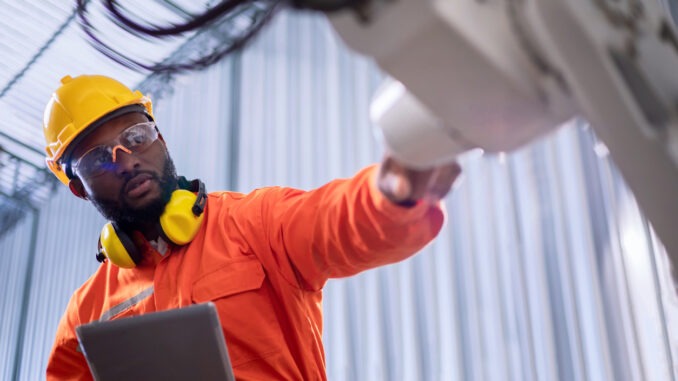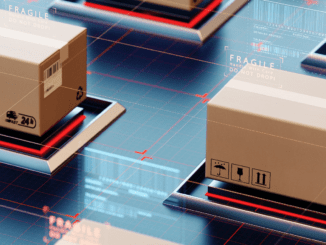
With costs of importing products from the EU and the Far East rising, how does UK manufacturing compare, and is it becoming more cost-competitive now? Should more dealers look at UK manufacturers for their products – and does sustainability play a part in people’s thinking?
Simon Howarth, marketing and design manager, Dams
There’s no doubt that British-made products are now more competitively priced compared to imported goods. Since the start of the COVID-19 pandemic in 2020, there has been disruption to supply chains for imported goods, with freight costs rocketing, and shortages in available containers and space on container ships. All this means that choosing products that have been made in the UK simply makes more commercial and financial sense now than at any time in recent history.
A manufacturing operation thousands of miles away, in the EU or the Far East, is also much less flexible than a factory in the UK where changes in production schedules can adapt in response to seasonal variations, market trends and spikes in demand.
With regard to furniture, every office environment is different. Each employee has a unique set of needs – many of which are not always apparent – and businesses are now challenged with creating a work environment that is all-inclusive for a diverse range of employees. It is, of course, impossible to design an office to suit every individual’s personality and needs; it’s more about offering choices to people.
Modern businesses are looking for suppliers that can offer them increased choice, enabling them to specify their office to suit their requirements – and genuine choice not only means having a variety of products, but also demands a variety of ranges and multiple options for finishes, upholstery and configuration to deliver a truly tailored approach.
Furniture suppliers with their own manufacturing facilities can offer that choice – but it’s also about confidence of quality, speed of delivery, continuity of supply and accountability from a manufacturer that is managing the various elements of the supply process on the ground.
Years and decades of tradition and know-how go into the production of furniture at Dams. Manufacturing in the UK also means that we are protecting and developing the skills needed for the office furniture industry of the future, ensuring that we create a legacy of quality, British-made, products that are fully-traceable and built to last.
Lawrence Savage, marketing manager, ExaClair
The manufacturing industry as a whole has been going through some challenging times over recent months, particularly when the effects of Brexit and the pandemic are taken into account. The recovery of economic activities within Asia, the USA and Europe has been leading strong demand for raw materials, which has impacted on the global supply chain by causing tensions in both material and transportation availability and costs, especially from the Far East.
This has also influenced lengthy extensions to lead times. A recent senior executive survey, undertaken by Make UK which represents 20,000 manufacturers, revealed that two-thirds of companies are regarding the UK as a competitive location for manufacturing, while about a third are seeking to become less exposed to international risks by focusing on, and investing in, more localised, innovative manufacturing opportunities within the UK and closer EU states in order to counteract these issues.
In terms of Brexit, importers have seemed to be less affected by it compared to exporters initially, thanks to the ‘staged customs controls’ but, going forward, they too will now have to make customs declarations. With additional safety and security measures due to come into force later in 2022, this may result in some added impacts concerning the speed of the movement of imported goods. However, planned governmental investments in funding – particularly across UK ports – should help alleviate these issues.
As to whether more dealers should look at UK manufacturers for their products, innovation is key, especially with the environment in the spotlight, and there’s certainly an increasing number of UK and European manufacturers concentrating on developing more specialised products and services to support dealers.
UK exports may be forecasted to reach £1 trillion by the mid-2030s but, by tailoring their operations to suit the local markets, manufacturers will still be able to also offer dealers effective solutions adapted to their localised consumer bases. With this in mind, ExaClair has recently invested in new production machinery within our UK facilities; this will enable us to expand our business capabilities and build closer relationships with our customers.
British-made products are in high demand, with a recent study indicating that 39% of international shoppers are willing to pay a premium for these goods. Likewise, there’s certainly a growing trend where UK consumers are seeking more locally-sourced – as well as environmentally-orientated – products. According to YouGov research, 57% of UK consumers are willing to pay more to address their concerns in relation to sustainable products; this rises to nearly 70% for members of Gen Z, who now make up approximately 40% of all consumer markets. This demand has resulted in an increase in the popularity of ecologically-aware ranges – such as the Exacompta Forever Young and Eterneco collections.
Steve Carter, managing director, Advantia
UK manufacturing is becoming more competitive compared to importing from the EU and Far East – if you can get the goods. UK manufacturing relies on materials coming from the Far East and other countries – and that’s where they are being let down, the same as importers are. One of my friends works for a small manufacturing company and he says the order book is full, but they cannot do anything because they can’t get hold of the raw materials. Most dealers are reliant on getting goods from wherever they can currently.
There are numerous reasons for this. Speaking to those both within and outside the trade, there is a perfect storm; high cost of bringing goods across, extremely high energy costs – and it doesn’t show any signs of immediate improvement.
Brexit is also playing a part, as now importers have to jump through hoops to get things done that, previously, were relatively easy; they aren’t easy anymore! If you are trying to get goods into the country, any dealer will tell you their back order list is longer than they would like it to be and this is because suppliers/vendors have to jump through these hoops. Even getting goods to/from Northern Ireland comes with its challenges now. Add in the paperwork that needs to be filled in to import goods, and it’s bumping-up costs; all that you can do is add this onto the cost of goods – which is why we are seeing increases, sometimes on a monthly basis, for goods.
While everyone wants to support British manufacturing, the government has a big part to play – not just in supporting manufacturing businesses, but also the logistics that go with it – being able to bring goods into the country, being able to get those goods to manufacturing plants and then, once they have been made into products, getting them back onto the road to dealers and then the final mile deliveries.
It isn’t a case of flicking a switch and saying to a manufacturer ‘We’ll support you a little bit’, The whole supply chain requires looking at, including issues around not being able to get raw materials and issues with labour – not being able to get workers into warehousing, delivery or distribution roles.
If we could get behind British manufacturing that would be great. Once we get through this pandemic the next thing will be looking at sustainability and being environmentally-friendly, which is the right thing to do. If you can use British manufacturers, and cut down on emissions and carbon footprint, then everyone wins. End-users will want to do their bit to look after the planet and will take paying a little more for sustainable products, to a degree – but it can’t be extortionate amounts as they have a business to run.
However, they would happily pay a little bit more for products knowing that they have come from a sustainable source with a low the carbon footprint, which they could show to their customer base.


Be the first to comment